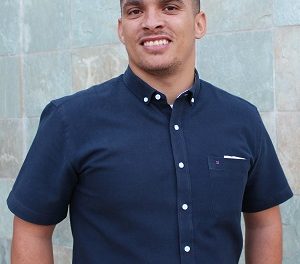
Offbeat 10 April 2015
 One line from the prayer at school burned a trail in my synapses, a memory path. “Oh Lord, let me not bend my knee before willful might.”
One line from the prayer at school burned a trail in my synapses, a memory path. “Oh Lord, let me not bend my knee before willful might.”
That prayer had an application. It was a defense against the sort of pressures that became evident in a multiracial school during the last decade of apartheid. There were a fair number of pressures. Although the existence of the school had legislative protection, there was no real social protection. Theoretically God would listen to our prayer and give us strength. On the other hand, the racism continued, either directly against people who had the ‘wrong skin colour’, or people like myself, by association with them.
Not much has changed. Racism is still everywhere in various guises, be they a simple, dumb matter of skin colour, language, heritage, or geographical origin. Inclusiveness has a way to go before it becomes effective.
The easy way for me not to bend the knee was just to avoid those places and circumstances where cutting words and violent actions were likely. There was a form of a replacement community in that school, which I still appreciate.
The line in the prayer was great. It stank of hard-edged rebellion in the face of willful might. In the absence of the ability to go out and fight half of everyone for the affront of apartheid, and my adolescent right to be publicly moonstruck over several of my female classmates, I had to find other ways to be rebellious.
The obvious way to achieve this was to smoke behind the physics block. The less obvious way was to question everything, particularly the validity of the impenetrable knowledge of plant biology, and its application in later life. In my mind, I was able to imagine that I was not bending my knee, that I had valid causes for rebellion.
Rebellion is important for kids. It is a way to test boundaries, and establish a sense of self, and place within the social system, rather than being a completely mindless tool.
Yet in conservative hindsight, the boundaries have to be there. Boundaries give shape to rebellion and, without boundaries, rebellion becomes vicious nihilism. This is particularly true in adolescents and young people who have a tendency to respond to the malicious Amygdala, and think with raging hormones. There is a definite truism in this. Youth is the most evident general characteristic of the angry, aggressive rebel.
Youth always will want to change the world, but there have been brakes. The spread of rebellion was been slowed by the limits of communication, and limitations on the ability to associate in the interests of the security of numbers. This, however is changing with the advent of widespread internet.
ISIS makes its case wherever it wants. Young, angry members of society who have grown up with Islam find it easy to give voice to unresolved rage. By joining physically, they gain the ability to turn violent fantasy into ugly reality.
In much the same way, pret-a-porter hacktivism makes it easy to don a mask or adopt an identity and go completely wild. The attacks are commonplace now, but in the case of hacktivism, there is no highly defined sense of ideology. The urge to attack is once again most apparent.
ISIS and hacktivism share one common trait: there is no winnowing of the enemies, no clear definition of who is absolutely wrong. The enemies are ‘everyone else’. I can understand that from youthful experience of my hormones. Yet in the Eighties, there were brakes, and my anger subsided.
The other important phenomenon in the Eighties was the fact that there was a clear and positive vision of what the future should hold, something to work towards.
Perhaps the signals are mixed today, or unclear. Unfortunately what I see is little more than a desire to break. Things. That is a major problem. Nature abhors a vacuum. And the vacuums that are created will be filled by the opportunistic.
Without a goal, rebellion is dangerous. If there is no way to provide goals, the future becomes a dark and difficult place.











































